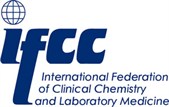IFCC Strategic Plan Overview
The original IFCC strategic plan was conceived and refined during the period 1990-1994 by the Executive Board and reviewed by National Societies and Corporate Member. This strategic plan was subsequently developed by successive Executive Boards.
The need for a strategic plan was the result of a situation analysis of diagnosis, treatment and care on a world-wide basis. The changing role of the clinical laboratory is evolving as a result of new medical discoveries, new technologies, and changes in the organisation and process of laboratory support of clinical services. In addition, the role of IFCC as an organisation developing voluntary standards has been modified as a result of standards issued by ISO, CEN, other International organisations and National bodies such as CLSI and JCCLS. In response to the changes in the nature and organisation of laboratory testing , IFCC had already expanded its field of activities to encompass other clinical laboratory disciplines in addition to clinical chemistry. However, there is a need to ensure the Federation is still working to achieve its stated aims.
The ongoing strategic plan is intended to achieve a number of principal objectives, with the priorities and tactical implementation being guided by the IFCC Membership. These internal and external changes are all intended to maintain IFCC as a valid and credible resource of expertise for the improvement of patient care through laboratory medicine.
IFCC Strategic Plan 2020-2023
IFCC President (2020-2023)
Khosrow Adeli PhD, FCACB, DABCC, FAACC
The IFCC President, Prof. Khosrow Adeli with the support of the IFCC Executive Board has prepared a strategic plan for the period 2020-2023, to continue the IFCC’s mission of “Advancing excellence in laboratory medicine for better healthcare worldwide”.
In partnership with all IFCC divisions and functional units, over the next years IFCC will strive to enhance a leadership position in the field of laboratory medicine by:
- Directly Impacting Healthcare and Patient Outcomes by working with developing countries around the world to advance programs such as Global Newborn Screening in collaboration with WHO, Gates Foundation, industry, others; and by providing scientific and operational training and support on-site for labs in developing countries.
- Directly Contribute to Global Lab Quality by developing an International IFCC External Quality Assurance program and innovative quality improvement strategies, to disseminate the concept of total quality management and quality systems approach to clinical laboratories and national societies, particularly in developing countries.
- Directly Contribute to Global Lab Quality – Develop a global consortium on Reference Intervals, for adult, paediatric and geriatric populations. The initiative would involve expertise and data from expert groups in this area, from around the world. IFCC would become the repository for collective data from around the world, facilitating harmonization as a long-term goal.
- Becoming the largest provider of free Distance Learning/eLearning in the field of laboratory medicine worldwide. Globally, focusing on developing countries and young scientists, students and trainees, through the new eAcademy platform and its vast network of experts, IFCC can develop the most comprehensive database of eLearning programs to support education by its member societies.
- Continuing to promote the Value of Laboratory Medicine by gathering the evidence to demonstrate the value of lab medicine in clinical decision making and healthcare delivery, communicating this to the public and all stakeholders. A key mandate of IFCC will be to develop the value of Lab Medicine, by collaborating and encouraging research, particularly in areas like critical care, endocrinology, cardiology, GI/Nutrition, etc.,
IFCC could help centres in setting up studies to properly collect such data (common study protocols and formats). The evidence gathered from around the world can then be used to promote the critical role of laboratory medicine in healthcare to key stakeholders including governments, administrators and other healthcare workers as well as the public at large. - Encouraging and supporting a culture of innovation in the IFCC community and communicate technological and process innovations to laboratory scientists and physicians globally. In association with regional federations, member societies, young scientists and corporate members, ensure that IFCC is a driver of technological innovations such as artificial intelligence and machine learning, and their application in laboratory medicine.
- Enhance Functional Unit Productivity by increasing the use of video-conferencing across all units within the IFCC organization; 2-3 virtual annual meetings, in addition to one face to face meeting is advisable.

